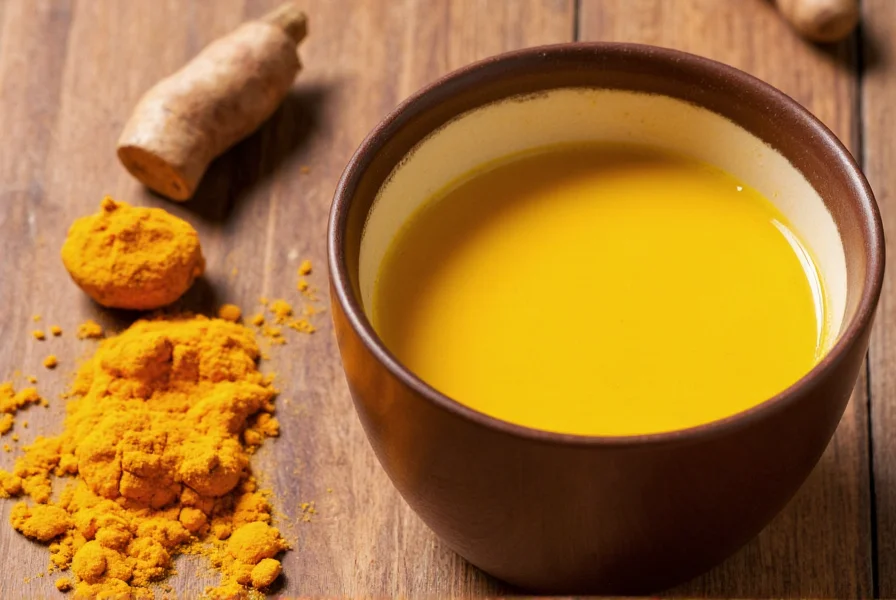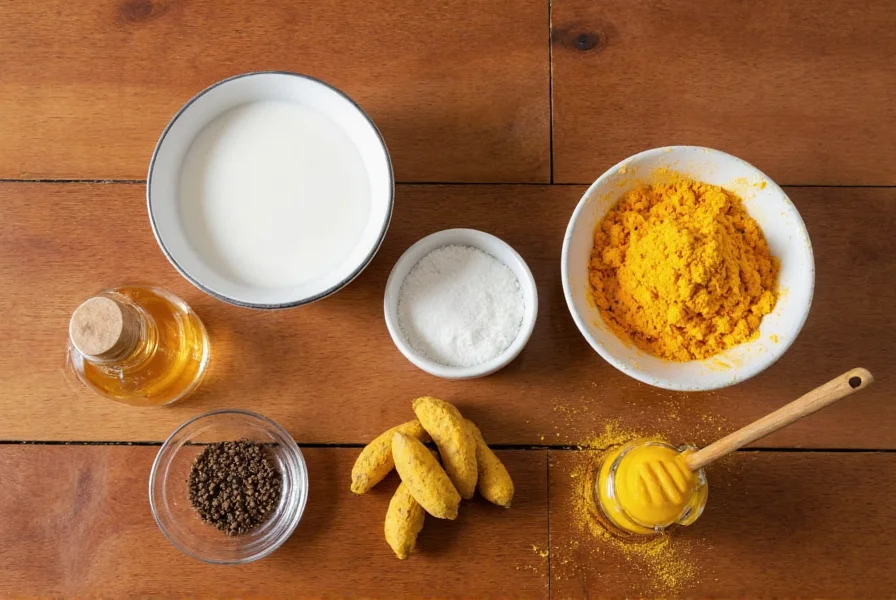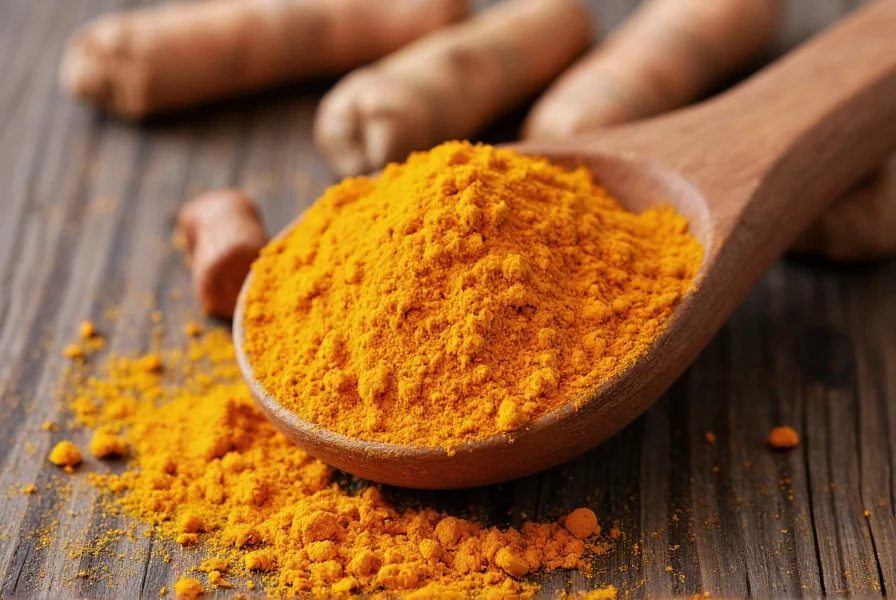For centuries, turmeric has been valued in traditional medicine systems across Asia. Modern science is now validating many of these traditional uses while revealing important nuances about how this golden spice actually works in the human body. Understanding turmeric for health requires examining both the promising research and the limitations of current scientific knowledge.
The Science Behind Turmeric's Health Properties
Turmeric (Curcuma longa) is a flowering plant whose rhizomes produce the familiar yellow-orange spice. The primary bioactive compound responsible for most health benefits is curcumin, which constitutes about 2-8% of turmeric by weight. Curcumin functions as a potent antioxidant and anti-inflammatory agent through multiple biological pathways.
Research published in the Journal of Medicinal Food demonstrates that curcumin can inhibit inflammatory enzymes like COX-2 and reduce inflammatory cytokines such as TNF-α. Unlike pharmaceutical anti-inflammatories that often target single pathways, curcumin's multi-target approach may explain its broad therapeutic potential with fewer side effects.

Evidence-Based Health Benefits of Turmeric
When evaluating turmeric for arthritis management, multiple clinical trials show promising results. A 2016 study in the Journal of Medicinal Food found that 1,000 mg of curcumin daily significantly improved pain and function in osteoarthritis patients compared to placebo. The anti-inflammatory effects appear comparable to some non-steroidal anti-inflammatory drugs (NSAIDs) but with better gastrointestinal tolerance.
For cardiovascular health, turmeric shows potential in improving endothelial function—the lining of blood vessels that regulates blood pressure and clotting. Research in Nutrition Journal indicates that curcumin supplementation may improve flow-mediated dilation by 3-4% within 8 weeks, a marker of vascular health that correlates with reduced heart disease risk.
| Health Benefit | Research Evidence Level | Recommended Daily Amount | Timeframe for Noticeable Effects |
|---|---|---|---|
| Joint inflammation reduction | Strong clinical evidence | 500-1,000 mg curcumin | 4-8 weeks |
| Oxidative stress reduction | Moderate evidence | 500 mg curcumin | 2-4 weeks |
| Mood support | Preliminary evidence | 1,000 mg curcumin | 4-6 weeks |
| Cardiovascular support | Emerging evidence | 500-1,000 mg curcumin | 8+ weeks |
Understanding Turmeric Bioavailability Challenges
One critical factor often overlooked in turmeric for health discussions is bioavailability. Pure curcumin has notoriously poor absorption—studies show less than 1% enters the bloodstream when consumed alone. This explains why traditional preparations often combine turmeric with black pepper (containing piperine) or healthy fats.
Research in Planta Medica demonstrates that adding just 20 mg of piperine to curcumin increases bioavailability by 2,000%. Similarly, consuming turmeric with fats like coconut oil or olive oil enhances absorption due to curcumin's fat-soluble nature. Modern supplement formulations address this through liposomal delivery systems or nanoparticle technology.
Safety Considerations and Potential Interactions
Turmeric is generally safe at culinary doses (1-3 grams daily), but higher therapeutic doses require caution. The European Food Safety Authority established an acceptable daily intake of 0.13 mg per pound (0.3 mg/kg) of body weight for curcumin. Exceeding this may cause gastrointestinal discomfort in sensitive individuals.
People taking blood thinners should consult healthcare providers before using high-dose turmeric supplements, as curcumin may enhance anticoagulant effects. Those with gallbladder issues should also exercise caution, as turmeric may stimulate bile production. Pregnant women should stick to culinary amounts rather than therapeutic supplementation.

Practical Ways to Incorporate Turmeric for Health Benefits
For maximum benefit from turmeric for health, consider these evidence-based consumption strategies:
- Golden milk preparation: Combine 1 teaspoon turmeric powder with 1 cup warm milk (dairy or plant-based), a pinch of black pepper, and healthy fat like coconut oil
- Culinary integration: Add turmeric to soups, stews, and rice dishes—cooking with oil enhances absorption
- Smoothie booster: Blend 1/2 teaspoon turmeric powder with fruits, greens, and healthy fats like avocado
- Supplement selection: Choose products containing piperine or phospholipids for enhanced bioavailability
Remember that consistency matters more than single high-dose servings. Daily moderate consumption provides more sustained benefits than occasional large doses. Most research showing benefits uses daily supplementation over several weeks rather than acute single doses.
Current Research Limitations and Future Directions
While turmeric research shows promise, several limitations exist. Many studies use highly concentrated curcumin extracts rather than culinary turmeric, making direct translation to dietary use challenging. Sample sizes in human trials are often small, and long-term safety data beyond 6-12 months remains limited.
Emerging research is exploring turmeric's potential role in metabolic health, with preliminary studies suggesting benefits for blood sugar regulation. Other promising areas include cognitive health preservation and support for healthy aging. However, these applications require more rigorous clinical validation before definitive recommendations can be made.
Conclusion: Realistic Expectations for Turmeric's Health Benefits
Turmeric represents a valuable addition to a health-conscious lifestyle when used appropriately. Its anti-inflammatory and antioxidant properties offer genuine benefits supported by growing scientific evidence. However, it's not a miracle cure—managing expectations about turmeric for health is crucial. The most significant benefits come from consistent, moderate consumption as part of an overall healthy diet and lifestyle, not from occasional high-dose supplementation.
Frequently Asked Questions
How much turmeric should I take daily for health benefits?
For general wellness, 1-3 grams of culinary turmeric (about 1/2 to 1 teaspoon) daily provides benefits. Therapeutic supplementation typically uses 500-1,000 mg of curcumin with piperine, but consult a healthcare provider before starting high-dose supplementation.
Can I get enough curcumin from cooking with turmeric?
Cooking with turmeric provides health benefits but delivers less curcumin than supplements. One teaspoon of turmeric powder contains about 200 mg curcumin. To reach therapeutic doses studied in research (500-1,000 mg), you would need to consume 2.5-5 teaspoons daily, which may be challenging through food alone.
What's the best way to improve turmeric absorption?
Combine turmeric with black pepper (which contains piperine) and a healthy fat. Piperine can increase curcumin absorption by up to 2,000%. Consuming turmeric in warm liquids like golden milk also enhances bioavailability compared to dry powder alone.
Are there any side effects of taking turmeric daily?
At culinary doses (1-3 grams daily), turmeric is generally safe. Higher therapeutic doses may cause digestive upset in some people. Those on blood thinners should consult a doctor, as turmeric may enhance anticoagulant effects. People with gallbladder issues should also exercise caution.
How long does it take to see benefits from turmeric supplementation?
Most research shows noticeable benefits after 4-8 weeks of consistent daily use. Anti-inflammatory effects for joint health typically appear within 4-6 weeks, while cardiovascular benefits may take 8+ weeks. Individual results vary based on health status, dosage, and formulation bioavailability.











 浙公网安备
33010002000092号
浙公网安备
33010002000092号 浙B2-20120091-4
浙B2-20120091-4